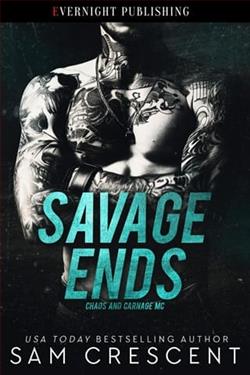Page 40 of Sing with Me
She stared at him with steely eyes. He could see so much of Isobel in their curly-haired daughter. When Elisa smiled, it was Isobel’s smile. Right now that smile was non-existent.
Even that looked like Isobel’s frown when she couldn’t get her way. Like the day they had discovered they were expecting Elisa thirteen years ago. Diehl wanted to name her Elizabeth, but Isobel had insisted on the name Elisa. She had been listening to Beethoven’s “Für Elise,” and that was the name she had latched on.
So, Elisa she was, although they ended up pronouncing her name as though it was the first part of Elizabeth.
“Tired?” Diehl tried again.
“I’m tired of life,” Elisa snapped.
She speaks.
A breakthrough. At the office, if he could get information on the problem, he could begin to solve it. Yet, this was his daughter, not some corporate employee he could fire if things didn’t work out. He could never get rid of his daughter.
“I’m tired too,” Diehl said, thinking quickly about how to identify with her problem.
She remained in her frowning posture.
“Grandpa Ned banished me to this island—well, the island next door—to get some rest. Did you know?”
Elisa’s big gray eyes widened. “Banished?”
Diehl nodded. “I’m not allowed to do any work related to the office.”
“No work?”
“I know, right. It’s terrible. I can hardly stand it. I don’t even have chores.”
“No chores?” Elisa’s face changed into one of surprise. Utter surprise. “Grandma Zeta made us do a lot of chores.”
“Well, I hope you enjoyed it because you’re not getting any of it for the next three months.” Or however long the kids were going to hang out on these islands.
“No chores. Are we still getting allowances?” Elisa started to open up.
Diehl thanked God for small victories.
“What are we going to do for three months?” Elisa asked.
Diehl shrugged. “Sleep a lot. Play a lot. I hope we don’t ruin our lives.”
Elisa placed a hand on Diehl’s shoulder. “Dad, we’re not going to ruin our lives.”
“Do you promise?” Diehl hoped Elisa would grow up to be a better adult than he and Isobel had been.
Perhaps God would take a hold of Elisa and protect her from all the bad things in the world. It would certainly be a matter of prayer for him as a father. How could he pray for a daughter who was still innocent and pure? Maybe he could ask Skye.
Skye?
How did she pop into his head?
Somehow he had thought of her when he considered who was still pure. Skye seemed like a nice woman in her early thirties, unmarried, with a good set of moral values, church-going, God-fearing. Maybe she might be able to impart some good influence on Elisa.
“We can play in the yard and have a picnic on the beach.” It sounded so carefree that Diehl himself warmed up to the idea of a laid-back, idyllic summer.
He made a mental note to ask Skye to prepare a picnic lunch—wait. She wasn’t his private chef. Well, he could request for her to turn one of their lunches into a picnic on the beach. Then he could take the kids to the beach behind Brinley’s beach house.
If it was on a Saturday, and if she was free on her day off, perhaps she could join them.
It was odd, but his tension dissipated the moment he had arrived on the Georgia coast. The sounds of the ocean and waves and seabirds took away the stress he had carried with him for one year. In retrospect, he should have taken an immediate break after he found out his wife had died.















